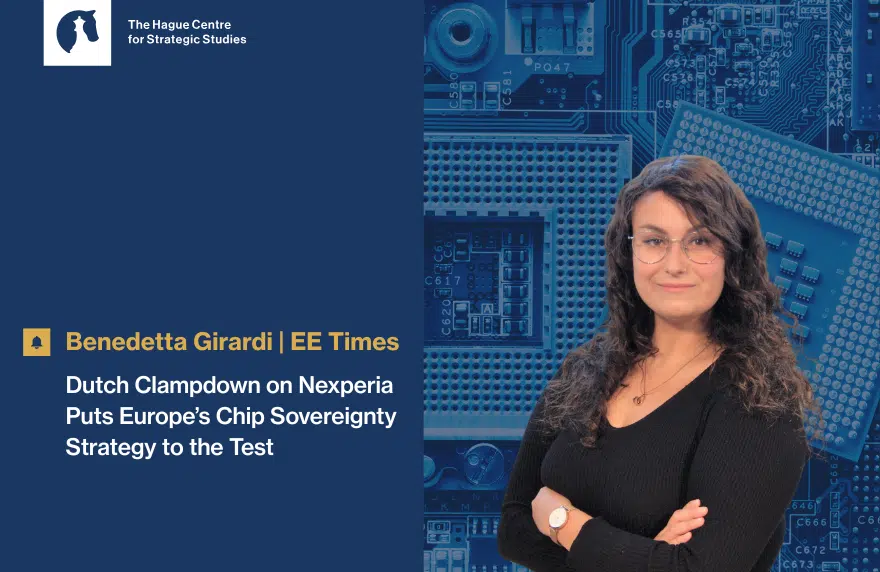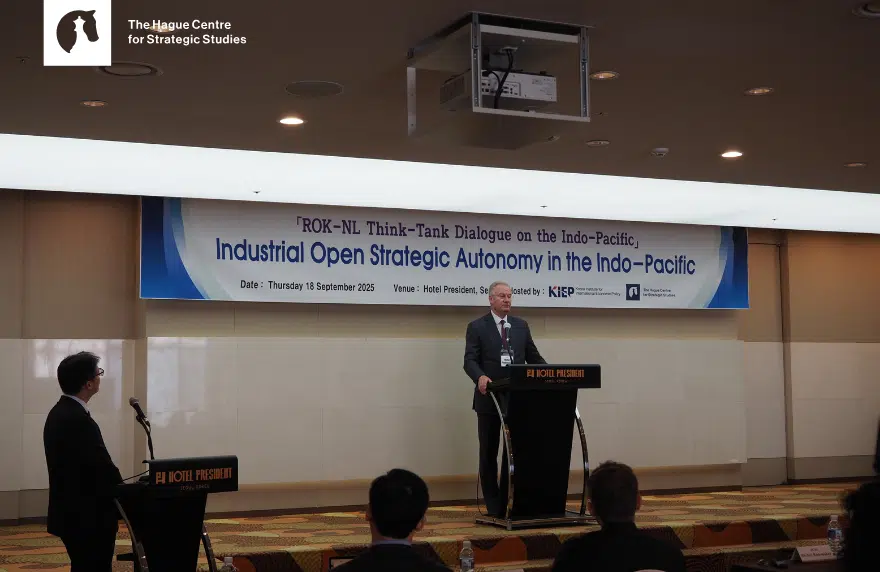When the Dutch government invoked an emergency law in late September 2025 to take control of semiconductor maker Nexperia, it signaled a turning point in how Europe intends to defend its technological sovereignty. The action was justified as a matter of national security, but it is reverberating through the semiconductor supply chain—and the automotive industry, in particular, is feeling the tremors.
A rare move under the Goods Availability Act
Nexperia, headquartered in Nijmegen, Netherlands, is one of Europe’s largest producers of legacy chips—the diodes, MOSFETs and logic components that quietly power cars, industrial systems, and consumer electronics. The company, a former NXP Semiconductors unit, has been owned by China’s Wingtech Technology since 2019.
Citing “acute governance shortcomings” and “risks to the continuity and safeguarding of crucial technological capabilities,” the Dutch Ministry of Economic Affairs temporarily seized control of the firm under the Goods Availability Act, a Cold War–era law seldom used since the 1950s. The move suspended CEO Zhang Xuezheng (aka Wingtech Zhang) and granted the government a deciding vote over management decisions.
Beijing responded by curbing exports of components and tooling from Wingtech-controlled facilities in China, raising fears of shortages in Europe’s already-tight automotive supply chain.
The irony is that Nexperia does not make the advanced AI processors that dominate geopolitical headlines. It produces mature, high-volume chips on 8-inch wafers—devices often considered commodities. Yet those parts are the backbone of Europe’s car manufacturing sector, where hundreds of small, validated components come together under strict qualification and safety rules. That is what makes the disruption so serious, said Jo Van Biesebroeck, professor of economics at KU Leuven.
“Changing a supplier in the automotive industry takes time,” he told EE Times in an interview. “Vehicle components are interdependent, so any change has ripple effects. Coordinating sourcing adjustments can take more than six months.”
Even seemingly simple substitutions can set off a cascade of redesigns, retesting and re-certifications. For Tier 1 suppliers and car OEMs already stretched by electrification and software-defined-vehicle projects, the timing could hardly be worse.
According to Van Biesebroeck, automakers usually hedge risk at the corporate level but not at the product level. “OEMs dual-source in order not to be overly reliant on one supplier,” he said. “But at the model level, they often single-source. Changes in sourcing strategy therefore affect the production of individual models greatly.”
The Nexperia case underscores the growing tension between industrial policy and manufacturing reality. Europe wants tighter control of semiconductor production on its soil, but its automotive sector depends on long-established supply relationships—many involving global firms and Chinese partners.
Policy meets production reality
According to Benedetta Girardi, strategic analyst at the Hague Centre for Strategic Studies, the national-security dimension goes beyond supply continuity. “Governance failures were the formal explanation,” she told EE Times in an interview. “But another pressing issue was the proposal to shift essential Dutch operations and decision-making authority to China. The security implications extended beyond foreign ownership to the possible dilution of operational control.
“The Netherlands is a classically liberal market economy,” she added. “So, this was really an experiment—a way to see how far a middle power like the Netherlands can push with a great power like China. I don’t think there’s a desire to escalate; both sides have strong incentives to de-escalate once they’ve tested the limits.”
On the European level, the Commission’s 2023 Economic Security Strategy explicitly called for “protective instruments” in sensitive technologies. Over the past two years, several EU member states have tightened foreign investment screening, mirroring the logic of the U.S. Committee on Foreign Investment. Germany blocked a Chinese investor from acquiring Elmos Semiconductor’s fab in Dortmund; France scrutinized Atos’s disposal of its HPC arm; and Italy has expanded its “golden power” regime for chip assets.
The Dutch intervention fits this broader European pattern. But their move goes further than screening; it amounts to direct operational control. Girardi said the combination of the 1952 Goods Availability Act and the Vifo Act of 2023 creates a new hybrid toolkit.
“Emergency powers definitely had a big role to play,” she said. “The Vifo Act handles the screening side, but the Goods Availability Act gives the state operational control in crisis. The precedent is that Europe can now move from ex ante investment screening to ex post governance intervention, but we shouldn’t be alarmist. This will stay limited to truly critical technologies.”
Girardi noted that Beijing’s reaction so far has been measured: “China has bigger fish to fry than the Netherlands and Nexperia. It’s likely to delay rather than disrupt. Beijing knows that escalation would hurt its own supply chain.”
According to Van Biesebroeck, firms increasingly perceive these flareups as part of a larger pattern. “Actions like this are part of the ongoing reorganization of supply chains,” he said. “Firms now experience the environment as pushing them toward reshoring, shortening supply chains and ensuring supply locally.”
For Europe’s automotive sector, the episode serves as a reminder that “legacy” does not mean “low risk.” Van Biesebroeck said he believes governments and manufacturers alike are only starting to grasp the strategic importance of mature-node chips.
“Many products could be considered strategic, especially if country partnerships become less reliable,” he said. “It would be useful for governments to map which materials and technologies belong on that list. My guess is that legacy chips would be on it.”
Girardi expects the short-term impact to show up mainly in delays. “We’ll probably see spikes in lead times and some component shortages,” she said. “Modules like power management and sensors could be affected, but I don’t expect complete interruptions, just delays that cascade through the supply chain.”
The wider stakes for Europe’s Chips Act
The Dutch action comes just as the EU Chips Act moves from planning to implementation. Its €43 billion (approximately $49.8 billion) funding framework aims to double Europe’s global semiconductor market share by 2030, emphasizing both cutting-edge nodes and the mature technologies that underpin automotive and industrial systems.
Girardi situated the Nexperia move within the broader EU “de-risking” agenda. “Brussels backed Dutch policymakers but didn’t coordinate the decision,” she said. “The EU may push for minimum standards for emergency intervention or cross-border coordination, but it has no legal base for an EU-wide framework for operational control. Semiconductors are still a private industry.”
Negotiations between The Hague and Beijing are ongoing, with reports suggesting the Netherlands could relinquish control if Chinese export restrictions are lifted and new governance safeguards are agreed. For now, Nexperia’s operations continue, but the message to industry is clear: Europe is ready to act decisively when it feels its technological base is at risk.
“The gap between business and government is closing,” Girardi said. “Not because business will be managed by the state but because geopolitics has become part of corporate strategy. Companies need to plan governance that anticipates possible state intervention. Independent local boards are a good start.”
By “independent local boards,” Girardi means governance bodies based in the host country, such as the Netherlands for Nexperia, composed of directors not tied to the foreign parent company. Their role is to ensure transparency and reassure governments that management decisions and sensitive operations are conducted under proper local oversight, reducing the risk of state intervention.
Whether that stance strengthens Europe’s semiconductor ecosystem or chills investment will depend on how deftly policymakers balance sovereignty with openness. What is certain is that the semiconductor industry, long a quiet enabler of globalization, has become a frontline of geopolitics.
For automakers, chip suppliers and governments alike, the Nexperia case may mark the moment that Europe’s chip sovereignty ambitions became an industrial reality—with all the complications that entails






